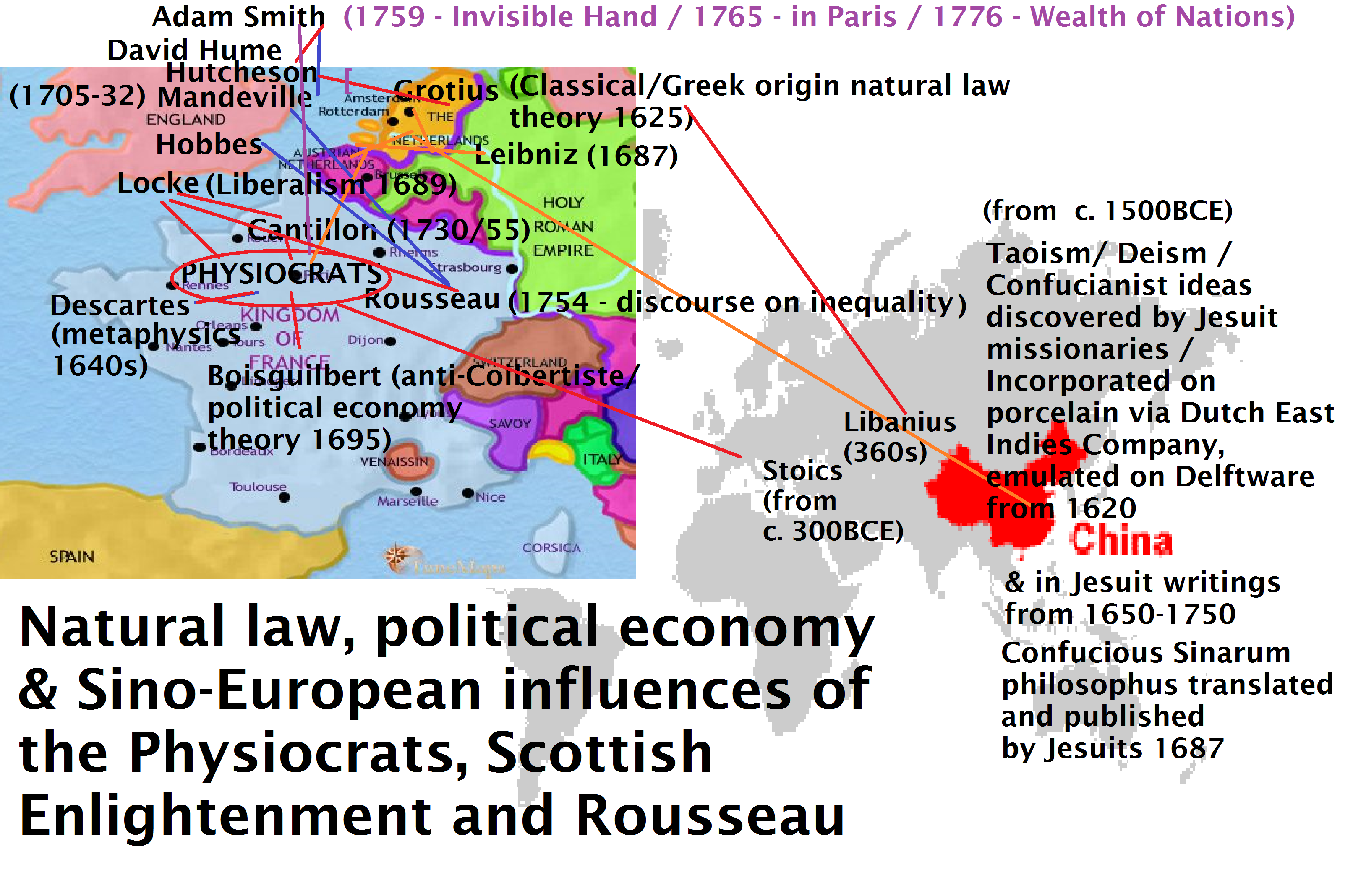The economic program of the philosophes was introduced in articles written for the Encyclopedic by the versatile Francois Quesnay (1694-1774), biologist, surgeon, and personal physician to the French court. Quesnay headed a group of publicists who adopted the name Physiocratsbelievers in the rule of nature. The Physiocrats expected that they would, as Quesnay claimed, discover natural economic laws “susceptible of a demonstration as severe and incontestable as those of geometry and algebra.”
This new Physiocratic concept of natural wealth clashed with the mercantilist doctrine of equating money (or bullion) and wealth. “The riches which men need for their livelihood do not consist of money,” Quesnay argued; “they are rather the goods necessary both for life and for the annual production of these goods.”
In his judgment, the emphasis placed by mercantilist states on the accumulation of wealth was therefore excessive. They made goods more expensive by levying tariffs and other indirect taxes, whereas they should have collected only a single, direct tax on the net income from land. “Laissez faire, laissez passer,” the Physiocrats urged—”Live and let live; let nature take its course.”
The classic formulation of laissez-faire economics was made by the Scotsman Adam Smith (1727-1790) in his Inquiry into the Nature and Cause of the Wealth of Nations, published in 1776. Smith leveled a vigorous attack on mercantilism, maintaining that it was wrong to restrict imports by tariffs intended to protect home industries.
Like the Physiocrats, Smith attributed the wealth of nations to the production of goods; but for him production depended less on the soil (the Physiocratic view) than on the labor of farmers, artisans, and mill hands. He minimized the role of the state, claiming that people who were freely competing for their own wealth would be led to enrich their whole society, as if they were guided by “an invisible hand”—that is, by nature.
The mercantilists had raised the state over the individual and had declared a ceaseless trade warfare among nations. Adam Smith and the Physiocrats, reversing the emphasis, proclaimed both economic liberty for the individual and free trade among nations to be natural laws. The laissez-faire program of the Enlightenment marked a revolutionary change in economic thought. It did not, however, revolutionize the economic policies of the great powers, who remained stubbornly mercantilist.

